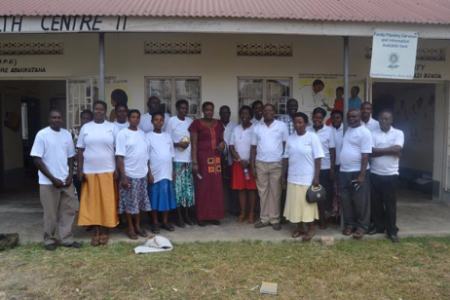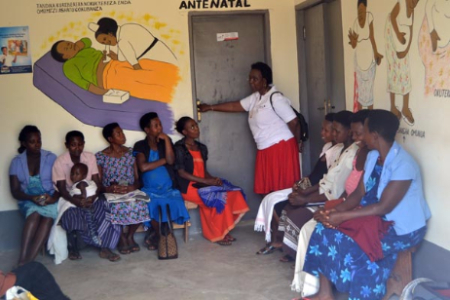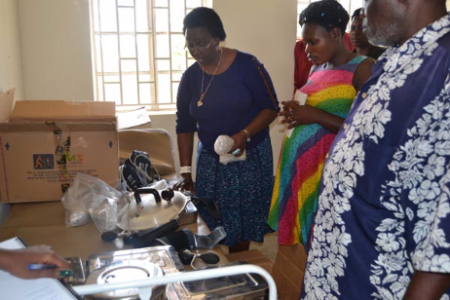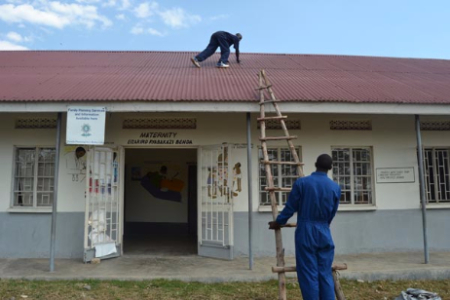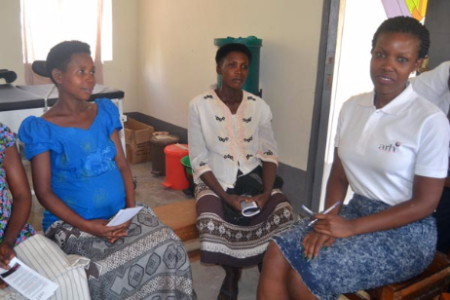26 Jan. 2016
Since 2010, Action for Reproductive Health (ARH) has been working with the communities in the Ntungamo District of rural Uganda, focused on improving maternal health. Our most notable success is the Nyabushenyi Health Center. Through active support and leadership, ARH has transformed the Nyabushenyi Health Center into a suitable maternal and child health service center. One of the 33 health centers in the district, the center serves three surrounding parishes. Situated on a remote hilltop, the Nyabushenyi Health Center II can be difficult to reach given the poor state of the access road.
Inadequate Maternal Health Care
At the time of ARH’s initial involvement in 2010, the center could hardly handle a normal delivery. Essential requirement such as placenta pit, delivery instruments, post delivery medication to stop bleeding, resuscitation equipment for the baby and lighting were lacking. Moreover fresh, clean water is not easily accessible.
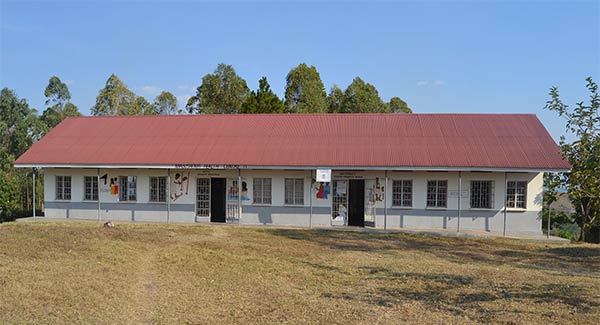
There were significant issues with the health providers as well. The nurse in charge of the center was always absent, medical supplies sold to private clinics, and the community members themselves did not find it convenient to seek services there. Moreover, the community had never reported the anomalies, for a number of reasons. The District Health authority did not closely monitor the center because of limited funds, the poor state of the local road, and the lack of activity at the center.
With ARH’s extensive intervention, the center is now better stocked. Although still classified as a Health Center II, the Nyabushenyi Health Center provides better services than many area Health Center IIIs which are designed to handle maternal health issues.
A Comprehensive Change to Maternal Health Provision
The initial intervention that ARH undertook included the construction of a placenta pit and the donation of delivery sets, blood pressure machines, fetal scopes, and adult and pediatric beds and mattresses. In addition, ARH conducted a series of workshops to empower the midwives and Village Health Team members on up-to-date maternal health practices. ARH furthermore educated the District Authorities and the local community about the organization’s intended mission. ARH worked to actively involve men in these conversations and has met with them in bars and restaurants, talking with them about the need for men to be involved in the health of family members.
Appreciative that updating the facility and its immediate staff was not enough, ARH then advocated for a Midwife, consulting with the District Authority, which in turn provided the center one. As a result, every week more than 25 mothers receive antenatal services at the center. In the first four months after the Midwife began working at Nyabushenyi Health Center, she conducted 31 deliveries (a number would be higher if there had been power in the center).
With the Midwife at the center, it now provides post natal services, family-planning, immunization, HIV testing, and outpatient services for treating diseases and ailments such as malaria, cough and diarrhea. Currently, ARH is advocating for a second midwife to increase services and to ease the workload on the existing Midwife.
In July and August of 2015, ARH worked to bring lighting to the center (a solar lighting panel system was donated to aid visibility at night and sterilization of instruments ), more instruments were provided (to improve efficiency) and medication to prevent postpartum bleeding. The ARH leadership also networked extensively at local, national and international levels, raising awareness about maternal health needs in rural Uganda – while highlighting the success achieved at the Nyabushenyi Health Center.
Much More to Be Done
Although the center’s performance is good so far, a lot more needs to be done to make services adequate enough to meet maternal and child health needs. Early detection of conditions that affect pregnancy labor, puerperium and the baby are still not available on site. Services such as ultra sound scan, laboratory diagnosis and mammogram examination are still not available.
The Nyabushenyi Health Center, which is a little more than 116 km away from where a government facility that could offer some of these services, serves three parishes. Sadly, all the mothers, nurses and midwives that ARH interviewed at the 33 centers in the Ntungamo District reported that they had never had an ultra sound scan, a mammogram exam or a pap smear. That means cervical cancer and breast cancer will only be detected in late stages. It also means that conditions that could be detected on ultra sound scan, go unseen and pose danger to the mother and baby.
ARH has urged the government to improve accessibility to the center both by means of improving the road and providing an ambulance. In the meantime, ARH has arranged for a motorcycle ambulance, until a real ambulance can be secured.
Seeking Partners to Provide Solutions
ARH is seeking support from kind people and suitable organizations to continue efforts to improve the capacity of the Nyabushenyi Health Center. If you are interested in improving maternal health in rural Uganda, please contact Françoise R. Kauzya on +001 732 423 2370 or f.kauzya@arhtogether.org to discuss opportunities.



